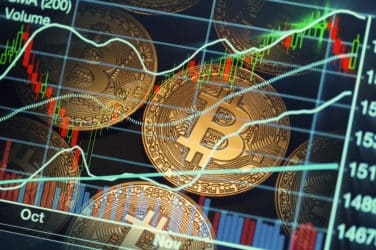Unintended consequences are always a hazard when regulating green field matters, such as cryptocurrency and crypto-assets. Vague definitions and rule-wording often throw the regulatory net much further than the regulators had intended.
In its attempt to regulate the $227 billion cryptocurrency and nascent crypto asset market, the US Securities and Exchange Commission and other regulators could throw the $152.2 billion global electronic gaming industry for a loop.
The idea is not that far fetch. The massive multiplayer online games established their fully functional virtual economies as well as established case law regarding virtual assets before Satoshi Nakamoto issued his 2008 bitcoin white paper.
Some could argue that these virtual assets are nothing more than utility tokens, which the SEC has blessed with two no-action letters earlier in the year.
The SEC stressed in both cases, TurnKey Jet’s chartered-air token and Pocketful of Quarters’ multiple game-platform token, that each utility token would not have a secondary market.
The regulator even went as far as noting in PoQ’s no-action letter that “no reasonable gamer will acquire Quarters for investment purposes or with a reasonable expectation of profit.”
However, a search on eBay and similar websites will show that the MMOGs have a thriving OTC secondary market. The MMOG’s may point to their rules forbidding such behavior but has not stopped the profit motive from developing de facto secondary markets.
When viewed through the four-prongs of the infamous Howey Test, these in-game virtual assets look more and more like securities.
Is it an investment of money? Check. Whether it is an in-game purchase of specific boots or the random boost of loot boxes, MMOG players are investing money to acquire these electronic assets.
Is there an expectation of profits from investments? Check. As mentioned before, there is a significant population of “farmers” who spend their time acquiring virtual assets like virtual gold or big freaking guns so that they can sell them to other players for hard cash. Various publications have reported and profiled these farmers as far back as 2013.
The investment of money is in a common enterprise? Check. The enterprises are the MMOGs themselves, be they Fortnite, World of Warcraft, Final Fantasy, or other games.
Do any profits come from the efforts of a promoter or third-party? Okay, this one might be a sticking point. Could the MMOG farmers be considered third-parties since they make peer-to-peer transactions with other players without the gaming platforms acting as a middleman?
These in-game virtual assets sound like securities as defined by the Howey Test. If the SEC is not careful regarding how it writes its rules, the regulator may find itself blindsiding gamers, Main Street investors, accountants, and tax preparers like never before.





